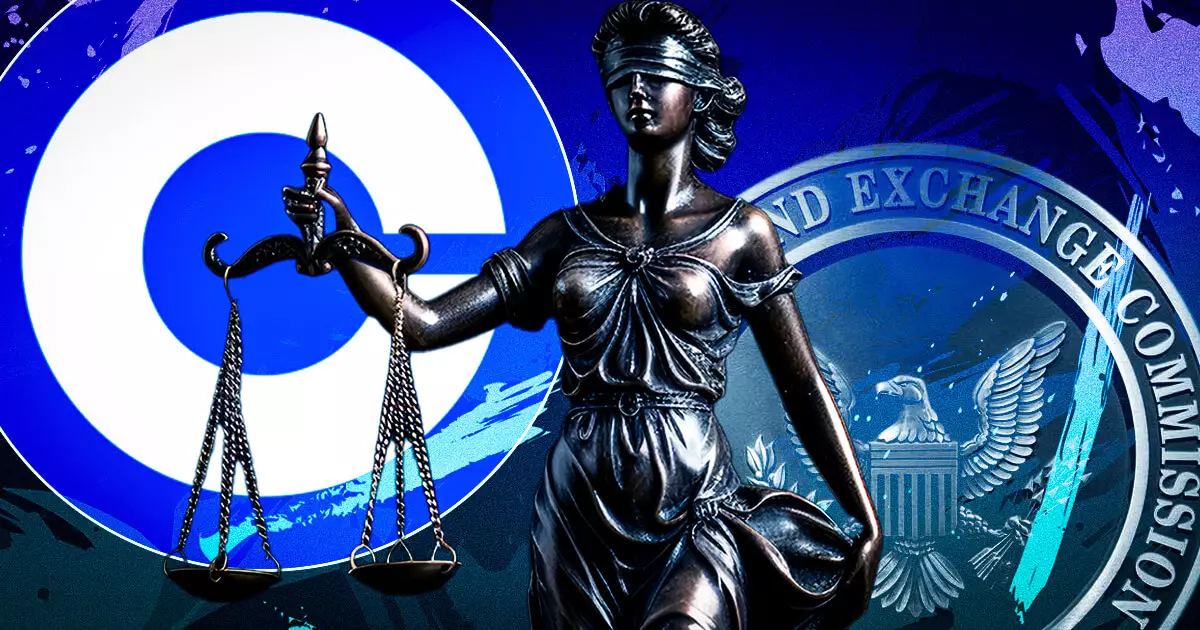The court hearing between Coinbase and the U.S. Securities and Exchange Commission (SEC) held on January 17, 2023, was a significant event for the cryptocurrency industry. The SEC had previously accused Coinbase of operating an unregistered securities exchange and engaging in the unregistered sale of securities through its crypto staking service. While no ruling or judgment was provided during the hearing, the comments and concerns expressed by Judge Katherine Polk Failla shed light on the arguments presented by both Coinbase and the SEC.
During the court hearing, Judge Failla raised concerns about the SEC’s attempt to broaden the definition of what constitutes a security. The judge specifically questioned the SEC’s arguments regarding 13 crypto tokens that Coinbase provides access to, but does not issue. According to the SEC, these tokens are part of a larger enterprise and should be considered investment contracts. However, Judge Failla expressed skepticism about this classification, signaling her doubts about the SEC’s approach to defining securities.
The SEC’s assistant chief litigation counsel, Patrick Costello, argued that the value of the tokens in question increases as the value of the underlying blockchain network or ecosystem grows. He contended that these tokens should be deemed securities, as they represent an investment in the future success of the network. While acknowledging that token issuers had “not exactly” violated securities laws, Costello asserted that the evolving nature of the case could lead to considering these assets as securities.
On the other hand, Coinbase defended its position by stating that the SEC had not demonstrated any contractual relationship between token issuers and Coinbase customers. Coinbase argued that the SEC’s complaint goes beyond the bounds of any previous legal interpretation, and urged the court to dismiss the case entirely. Coinbase emphasized the importance of sensible enforcement and rulemaking actions that align with statutory language, rejecting the twisting of laws to fit the SEC’s narrative.
Judge Failla expressed a critical attitude towards the SEC, questioning why the case should not be dismissed. She referred to Senator Cynthia Lummis’ support for a dismissal, highlighting Lummis’ deep involvement in the cryptocurrency space. The judge alluded to Lummis’ suggestion that the existing securities laws may be outdated, indicating her openness to reconsidering the application of these laws to the emerging cryptocurrency markets.
During the closing arguments, the SEC argued that Coinbase was misapplying the Howey Test of 1934, a legal test used to determine whether an instrument qualifies as an investment contract under U.S. securities laws. The SEC denied the existence of any easy workaround for Coinbase to avoid registration as a securities exchange. Coinbase, on the other hand, maintained that the SEC had failed to establish the presence of a contractual relationship between token issuers and Coinbase customers.
Despite Judge Failla’s critical stance towards the SEC, she refrained from delivering a ruling during the hearing. In fact, she encouraged both parties to view the lack of a decision as a compliment, suggesting that each side presented viable and compelling arguments. This suggests that the judge will carefully consider the evidence and arguments presented before reaching a conclusion.
The Coinbase vs SEC court hearing presented a critical juncture in the ongoing legal battle between the cryptocurrency exchange and the regulatory authority. Judge Failla’s concerns about broadening the definition of securities and her acknowledgement of Senator Lummis’ input indicate a potential shift in the interpretation of securities laws in the context of cryptocurrencies. While the final judgment remains pending, this court hearing highlights the complexities surrounding the classification and regulation of digital assets and the need for a balanced and informed approach in addressing these issues.


Leave a Reply